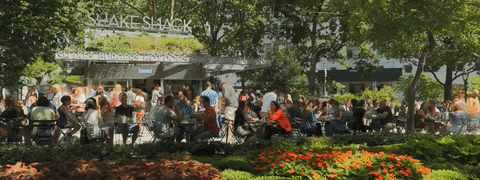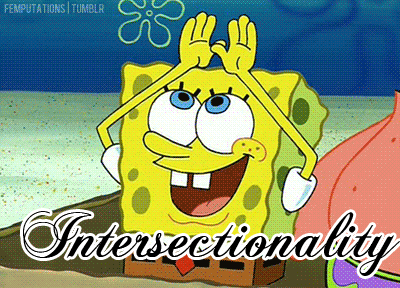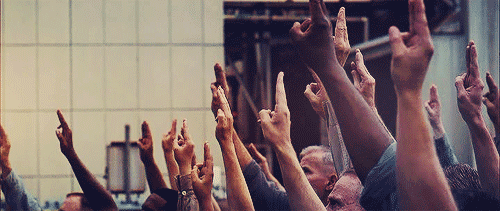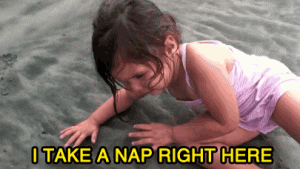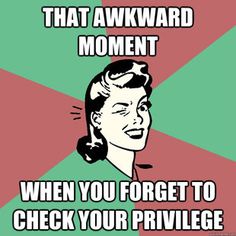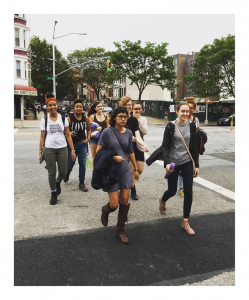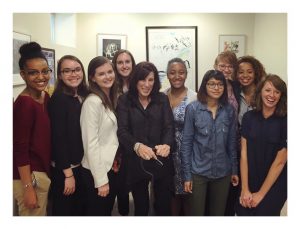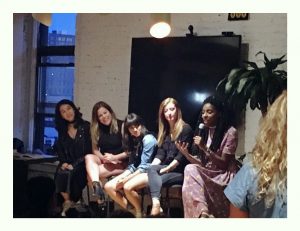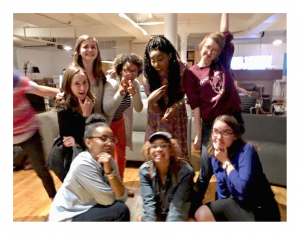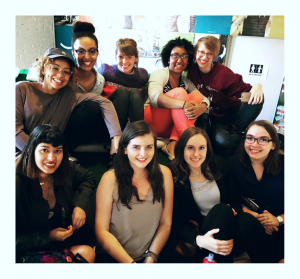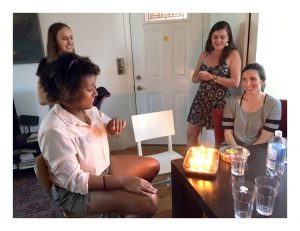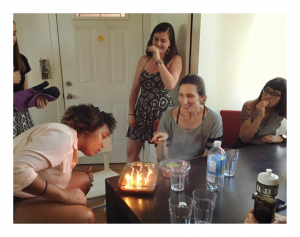A few weeks ago the Moxies attended a film screening about a bicycle group called the Ovarian Psycos . The film chronicled the adventures of a bicycle group in Boyle Heights, a predominantly Latino neighborhood in Los Angeles. This group’s purpose is to retake the neighborhood for women by riding their bikes and howling in the night. They basically howl to make their presence and power known to the men of the neighborhood. The film provoked me. It had me thinking about gender politics, gendered spaces, gendered violence, and race. Last week those thoughts became fertile through our academic analysis of gender violence, the preceding week’s articles on police violence, and the work of Brooklyn Movement Center .
Now what’s this violence I keep talking about? In Carole Sheffield’s “Sexual Terrorism” article, sexual terrorism is any act of violence committed against women to create an atmosphere of fear. All women live in this atmosphere of terror and while most women will not feel every possible act of violence, every woman will have felt an act. For example, one of the most common actions against women is street harassment. This is a problem which has been increasingly criminalized, but criminalization has failed to curb the harassment. Instead we are left with criminalized communities and frightened women.
It is no shocking statement to say women live in fear. They fear men, the unknown, the dark, etc. because women are told as girls to be afraid. Women are told to fear strangers, going out at night, dressing scantly clad, and any other number of things. This is repeated to them as little girls and eventually women absorb all of this and become unintentionally and subliminally compliant. Often the older women get, the more they become aware of these perceived dangers and decide to comply. So how can women ever feel safe if it’s engrained? Or feel like they can walk at night by themselves if they’re socialized to feel unsafe? It’s not self defense courses marketed to them by some ex-cop or ex-military martial arts master. Women will find their way to feel safe in a world threatening them. So what is the solution?
Well there are alternatives to dealing with things like sexual harassment other than using police action (which harms a community and victims).One way women have found safety from gender violence at BMC is the No Disrespect bike patrols. BMC organizes all female identifying bike patrols in which women patrol against all gendered and sexualized street harassment in Central Brooklyn’s public spaces. Sexualized and gendered street harassment stems from the patriarchy (as does most things). If men didn’t feel entitled to women and their bodies then there would be no harassment. The same aspect of patriarchy that makes men feel they have the right to catcall women is the same aspect that makes men feel like they can physically, physiologically, financially, and legislatively control women’s bodies and lives. However, bikers like the Ovarian Psycos and No Disrespect will continue to push back at this arm of the patriarchy by taking back the streets. As long as there are women and girls on bikes practicing bystander intervention, increasing their visibility, and patrolling, there will be other options to criminalization and solutions to sexual terrorism.



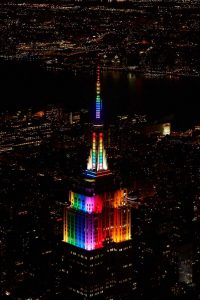

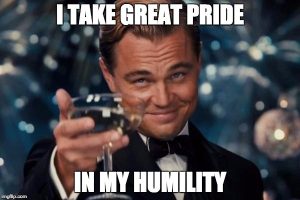
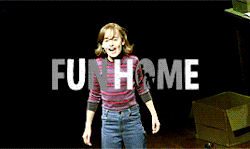
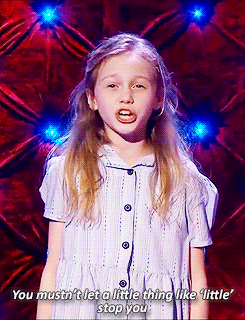
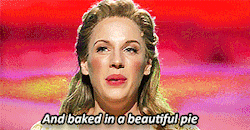
 four more weeks to go… What have I learned and what have I yet to learn?
four more weeks to go… What have I learned and what have I yet to learn?
